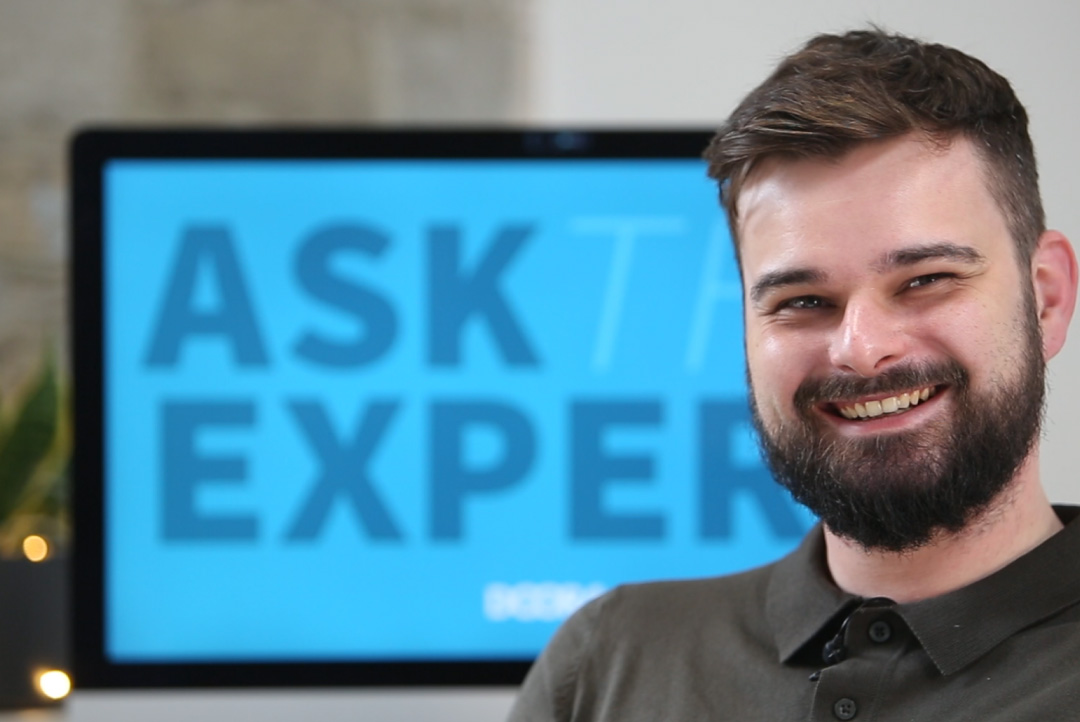
Making the most of e-commerce: from start-up to scale up
Our founder Leon Calverley got together with Adam Pritchard, founder of the challenger e-commerce platform Shopit, and chewed the fat. In this fast-moving conversation, they talked about what holds brands back, how small businesses scale, technologies and trends to watch, and how to overcome the problems that e-commerce creates.
Multichannel and multi-site e-commerce
Adam: The UK is a digital leader but brands are being held back by the website cost. The reason why Shopit pushed ahead with multisite is that, once it’s been built, the business warehousing infrastructure can be used by all websites, at tiny incremental cost. Businesses think running one website is hard enough and that it’s even harder to run three or four… but it’s not.
Leon: This is where a digital agency can add value – making sure the websites are targeting customers correctly and performing optimally with services like Conversion Rate Optimisation and SEO.
This is where a digital agency can add value.
Adam: Yeah, we’ve made it easier and cheaper but it’s critical to get the marketing right. So, for instance, an entrepreneur can build multiple websites marketing the same stock for different customers, all coming from the same warehouse. They can create niche websites. Google search volumes are phenomenally huge, so the low cost creation of niche websites tackling the long tail gives them the opportunity to sell more.
Leon: Creating specialised brands for intensive targeting of a demographic. This is how smaller brands could build their share of the market and compete with the big brands.
E-commerce platforms
Leon: The end-of-life for Magento 1 has shown many brands how expensive and resource-hungry it can be when you need to upgrade an open source platform.
Adam: Absolutely, Magento is great but it’s a beast to build each new website, and with that comes time and money. Shopit is a hosted platform, which means every single customer gets every single feature from day one. The idea is that our clients can plan for scale from the outset. They can make as many websites in as many territories they want for a fraction of the cost of a platform that charges by access to features or packages, like Magento. We’re trying to democratise e-commerce and remove barriers for brands who are keen to scale. Ten years ago, my agency was agnostic as far as platforms wenbt, and it taught us a lot about customer needs and desires.
We’re trying to democratise e-commerce and remove barriers.
Leon: Absolutely – and that’s where a specialist e-commerce agency has expertise in a wide range of e-commerce platforms, with the idea being that they will recommend the one that best suits your business requirements – whether that’s hosted or otherwise.
Planning to scale
Adam: From day one, start-up brands need to plan for the end dream. Most of a start-up’s initial budget will go on stock. They just need to get going. The cost of the platform – like Magento, or even Shopify with all the additional plugins needed – can hold them back. Even for bigger brands, the cost of the platform is a concern. Migration is the singular biggest fear. Many brands currently leaving Magento 1 are scared of switching off for a day, let alone a week, to migrate. The cost of downtime can be huge.
Leon: Agreed. With proper planning, it’s possible to keep migration downtime to less than a day – we do this all the time. But I’ve heard some horror stories, especially in recent months with the number of Magento 1 to Magento 2 migrations. Expertise in your web development team is absolutely critical. A fundamental understanding of data and DNS is critical. Keeping your infrastructure inside a hosted platform with patches and upgrades managed in the background is a bonus for brands!
Adam: Finding a platform that will scale is very desirable though.
Leon: Then they can migrate for the right reasons – for success. Are you trying to put web developers out of business, Adam?
Web developers and designers are essential for adding the extra genius to Shopit websites.
Adam: Not at all! Web developers and designers are essential for adding the extra genius to Shopit websites. We’ve made Shopit accessible but the best implementations of our system are always when a professional agency has been involved.
Leon: Glad to hear it!
Adam: Agencies are crucial to success. As well as finding the platform that will help you scale, you need to bring in an agency that will grow with you. Smaller brands outgrow their agencies fairly quickly because they don’t engage a really good one at the beginning. The first six months to two years is an incredible learning curve and you will probably need to update your teams and agency partners as a result.
The first six months to two years is an incredible learning curve.
Leon: I agree completely. If you can find an agency partner that will grow with you, one that can be there for the long term, it’s definitely a bonus. In my experience, the longer you can stay with an agency, the more invested they are in your success. They know you, they become integrated into your business and care about what you care about. It really is so important to have a partner who understands how the tech fits together and who knows your business inside and out. It’s important to understand what you’re looking for from your agency, also. Are they your commercial e-commerce consultant, or strictly a developer?
Adam: Growing together and adapting.
Trends and innovation
Leon: Where do you think we are with e-commerce – are brands getting it?
Adam: Covid has seen more traditional high street brands face up to the fact they need to be multichannel. Though even established brands are continually evolving with new technology launches and test-proven ideas.
Leon: What else do you think they should be keeping an eye on?
Adam: It depends on how fast we can adopt and evolve innovative technologies, but definitely keep tabs on AI. Live chat is a brilliant use of AI. I’m a fan of automation but I also believe there should be a person involved in it too, putting their brain on it. I’m not too sure about the use of AI to show recommended products to a customer based on what their previous purchases are. There’s a danger that we get stuck in a confirmation bias bubble where we’re not exposed to new products or new ideas. I need to have my horizons broadened and shown different things. Brands should not repeat the same old thing, but offer a well-rounded individual a well-rounded choice.
There’s a danger that we get stuck in a confirmation bias bubble where we’re not exposed to new products or new ideas.
Leon: The drive for privacy is perhaps having a counter productive effort on e-commerce personalisation. I’d be more than happy to share information between websites for convenience, so if I’m searching multiple providers for one thing, I can transport my preferences – like shoe size, my collar size, my kids’ ages – across all – with specific permissions. Like a personalised Schema. The drive for privacy is stopping anyone really making waves with this in a meaningful way.
Adam: Yeah. Many years ago I had an idea about how Google Shopping should evolve.So, if you see a guy wearing a jacket and you like it, you could photograph it and find out which shops nearby have it in your size, and when they close. A more advanced form of Google Lens. We’re not quite there yet.
The evolution of delivery
Adam: Did you know, in Hong Kong, there isn’t an appetite for having your shopping delivered? Most consumers buy online and pick it up on the way home, partly because everything is so local. Covid-19 has changed the way we shop in the UK very quickly and this might be the future for us. We’ve still got a browsing culture but in the future shops could become collection points and stock warehouses rather than places for experience.
Leon: And currently, ‘the last mile’ – the final distance in the journey to the customer’s home – usually means countless deliveries from different couriers, which is inefficient and not good for the environment.
Adam: Right. Companies like Carryr are trying to reinvent this, built on the premise that you don’t need a massive wagon to deliver one package. If this becomes popular, it will decentralise warehouses, distributing smaller warehouses in locations across the country.
Leon: What else should we be keeping an eye on?
How old is Brad Pitt?
Adam: Voice search. Though, it’s currently better for asking questions like ‘how old is Brad Pitt’ than ordering products. I think people still need to see the products. The single biggest problem that the internet created was that it distanced people from products they were going to buy. Touching, feeling and trying on products is an emotive experience.
Leon: What’s the solution?
Adam: Localised stock could solve these issues if business models change. So, you can order 10 pairs of jeans and try them on, return what you don’t want. The issue of returns has to be dealt with in the business model for this to happen.There are other opportunities, like virtual reality showrooms where you can talk live to a shop assistant and they will show you round the shop and show you products – how it looks, how it hangs. But you still can’t touch.
Leon: Is this where we’re heading? Turning the high street into a distribution centre, having stock localised?
Adam: I am not a fan of saying one thing will change the world of e-commerce – or the world. The internet struggles with anything other than showing related items. But yes, the High Street needs to become more experiential, more immersive, and also more widely fulfilling.
Current e-commerce norms do nothing at all to make the grid of products more exciting – it’s a two-dimensional design that doesn’t broaden our tastes.
Leon: Yes, current e-commerce norms do nothing at all to make the grid of products more exciting – it’s a two-dimensional design that doesn’t broaden our tastes. There is no vehicle for the discovery of new items. But I wonder if it’s a lack of imagination?
Adam: Purchasing food using ingredients packs is an interesting one to watch. But more needs to be done to help us discover and make it simple and a better experience. This could be pushed a lot more and become more experiential.
Takeaways
- Niche websites can help smaller brands compete
- Choose a platform that will help you scale
- Work with a digital agency partner
- Automate with human involvement
- Business models might need to change
- Think about experiential purchasing online
- Evolve ways to enhance product discovery
About Adam
Adam Pritchard launched Shopit a couple of years ago as a challenger brand to some of the big hosted platforms. It’s a hosted platform with an open API and clients pay for it based on traffic generation.
About Leon
In 2000, Leon Calverley founded Door4, a performance marketing agency that offers services that drive conversions – like Paid Search, SEO, Conversion Rate Optimisation and user-focused web development and design.
Photo by Becca McHaffie on Unsplash
-
 21.07.2019|Page speed affects everything from bounce rates to e-commerce transactions and your brand’s position in SERPs. But who is responsible for doing something about it?
21.07.2019|Page speed affects everything from bounce rates to e-commerce transactions and your brand’s position in SERPs. But who is responsible for doing something about it? -
 16.07.2020|Contribute your experiences of digital marketing during Q1, Q2 & Q3 of 2020 for a comprehensive whitepaper out in the autumn.
16.07.2020|Contribute your experiences of digital marketing during Q1, Q2 & Q3 of 2020 for a comprehensive whitepaper out in the autumn.
Scrapbook
We have a lot to talk about.Door4 opinions and insight - exploring performance marketing, communications and optimisation.












